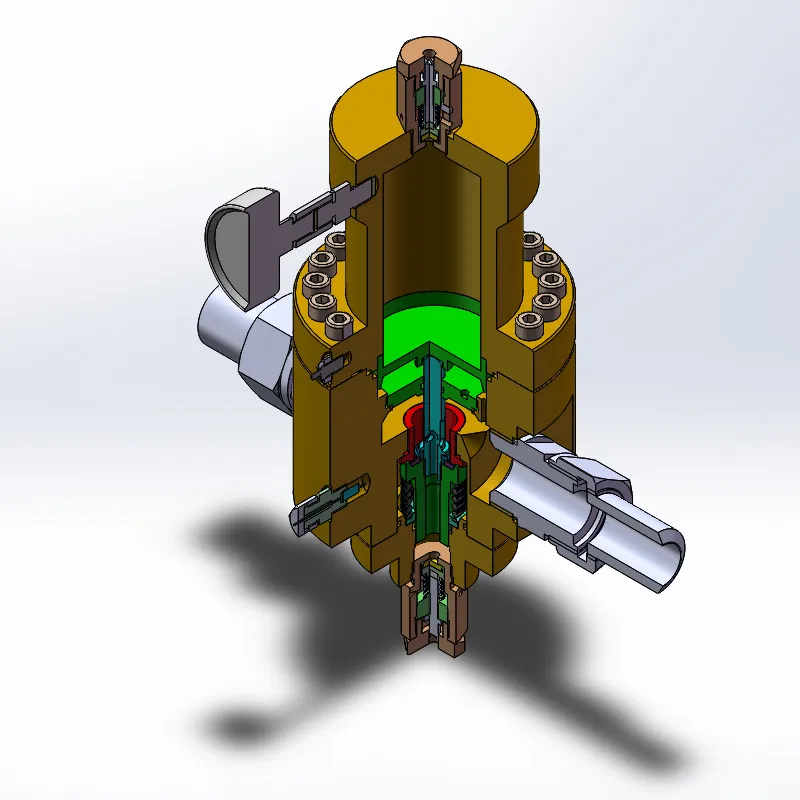
Oct . 19, 2024 05:24
Back to list
Optimizing Gas Metering Systems for Efficient Energy Management and Cost Reduction
Understanding Gas Metering A Critical Component of Energy Management
Gas metering plays a vital role in the efficient distribution and consumption of natural gas. As one of the primary energy sources for heating, cooking, and energy generation, the accurate measurement of gas usage is essential for both utility providers and consumers. This article delves into the intricacies of gas metering, its importance in energy management, and the various technologies employed in the field.
What is Gas Metering?
Gas metering refers to the process of measuring the volume of gas consumed by residential, commercial, and industrial users. Gas meters, typically installed at the point of entry to a building or facility, record the amount of gas used over a specified period. This data is crucial for billing purposes, ensuring that consumers pay for the actual gas they consume.
There are different types of gas meters, including diaphragm meters, rotary meters, and ultrasonic meters, each serving different applications and capacities. Diaphragm meters are commonly used in residential settings, while rotary meters are more suitable for industrial applications due to their higher flow rates.
The Importance of Accurate Gas Metering
Accurate gas metering is paramount for several reasons. Firstly, it ensures fair billing practices. Consumers are charged based on their usage, which promotes energy conservation and responsible consumption. Secondly, accurate measurements contribute to the financial viability of gas utility companies. Inefficient metering can lead to revenue loss, disputes with customers, or regulatory fines.
Moreover, gas metering is critical for safety
. Gas leaks can pose significant risks; therefore, continuous monitoring of gas usage helps detect irregularities, enabling timely intervention to prevent hazards. Utilities can identify potential leaks or irregular patterns in consumption, which may indicate safety issues.Technological Advancements in Gas Metering
gas metering

The advent of smart technology has revolutionized gas metering, leading to the development of advanced metering infrastructure (AMI). Smart gas meters are equipped with communication capabilities that allow real-time data transmission. This enables utilities to remotely monitor consumption patterns, identify discrepancies, and perform remote shut-offs in emergencies.
Smart meters also empower consumers by providing them access to real-time data about their gas usage. This transparency encourages more sustainable consumption behaviors and allows users to track their carbon footprint effectively.
Additionally, predictive analytics and machine learning algorithms are increasingly being used to enhance gas metering systems. These technologies analyze historical consumption data and environmental factors to forecast demand, optimize supply chains, and mitigate energy costs.
Challenges in Gas Metering
Despite the advancements, there are still challenges in gas metering. Privacy concerns regarding data transmission and storage have emerged with the deployment of smart meters. Stakeholders must ensure that consumer data is protected and used responsibly.
Further, the integration of new technologies with existing infrastructure can be a complex and costly process. Utilities often face hurdles related to regulatory compliance, workforce training, and consumer adaptation.
Conclusion
Gas metering is an essential aspect of energy management that impacts consumers, utility providers, and the environment. Accurate measurement not only ensures fair billing practices but also plays a crucial role in safety and energy conservation. Technological advancements, particularly in smart metering, have transformed the landscape, offering numerous benefits while presenting new challenges.
As we move towards a more sustainable energy future, the importance of effective gas metering will continue to grow. Stakeholders must collaborate to address the challenges, harness technology, and enhance the efficiency of gas consumption. Ultimately, gas metering will remain a key player in the transition to smarter energy solutions that benefit all parties involved.
Latest news
-
Safety Valve Spring-Loaded Design Overpressure ProtectionNewsJul.25,2025
-
Precision Voltage Regulator AC5 Accuracy Grade PerformanceNewsJul.25,2025
-
Natural Gas Pressure Regulating Skid Industrial Pipeline ApplicationsNewsJul.25,2025
-
Natural Gas Filter Stainless Steel Mesh Element DesignNewsJul.25,2025
-
Gas Pressure Regulator Valve Direct-Acting Spring-Loaded DesignNewsJul.25,2025
-
Decompression Equipment Multi-Stage Heat Exchange System DesignNewsJul.25,2025

